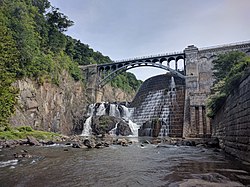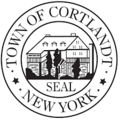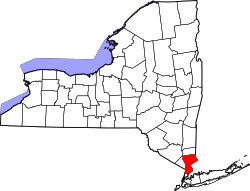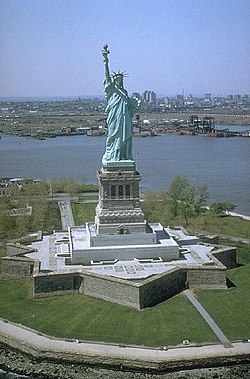Demographics
Historical population| Census | Pop. | Note | %± |
|---|
| 1790 | 1,932 | | — |
|---|
| 1820 | 3,421 | | — |
|---|
| 1830 | 3,840 | | 12.2% |
|---|
| 1840 | 5,592 | | 45.6% |
|---|
| 1850 | 7,758 | | 38.7% |
|---|
| 1860 | 10,074 | | 29.9% |
|---|
| 1870 | 11,694 | | 16.1% |
|---|
| 1880 | 12,664 | | 8.3% |
|---|
| 1890 | 15,139 | | 19.5% |
|---|
| 1900 | 18,703 | | 23.5% |
|---|
| 1910 | 22,255 | | 19.0% |
|---|
| 1920 | 21,023 | | −5.5% |
|---|
| 1930 | 26,492 | | 26.0% |
|---|
| 1940 | 11,016 | | −58.4% |
|---|
| 1950 | 14,146 | | 28.4% |
|---|
| 1960 | 26,336 | | 86.2% |
|---|
| 1970 | 34,393 | | 30.6% |
|---|
| 1980 | 35,705 | | 3.8% |
|---|
| 1990 | 37,357 | | 4.6% |
|---|
| 2000 | 38,467 | | 3.0% |
|---|
| 2010 | 41,592 | | 8.1% |
|---|
| 2020 | 42,545 | | 2.3% |
|---|
|
At the 2000 census there were 38,467 people in 13,517 households, including 10,137 families, in the town. The population density was 969.7 inhabitants per square mile (374.4/km2). There were 14,065 housing units at an average density of 354.5 units per square mile (136.9 units/km2). The racial makeup of the town was 88.60% White, 4.59% African American, 0.21% Native American, 2.57% Asian, 0.01% Pacific Islander, 2.35% from other races, and 1.68% from two or more races. Hispanic or Latino of any race were 7.19%. [9]
Of the 13,517 households 39.3% had children under the age of 18 living with them, 64.3% were married couples living together, 7.9% had a female householder with no husband present, and 25.0% were non-families. 21.3% of households were one person and 8.8% were one person aged 65 or older. The average household size was 2.75 and the average family size was 3.22.
The age distribution was 26.5% under the age of 18, 5.3% from 18 to 24, 30.1% from 25 to 44, 25.3% from 45 to 64, and 12.8% 65 or older. The median age was 39 years. For every 100 females, there were 95.8 males. For every 100 females age 18 and over, there were 92.7 males.
The median household income was $75,442 and the median family income was $89,053. Males had a median income of $59,949 versus $41,115 for females. The per capita income for the town was $33,432. About 2.9% of families and 4.5% of the population were below the poverty line, including 4.1% of those under age 18 and 5.1% of those age 65 or over.
This page is based on this
Wikipedia article Text is available under the
CC BY-SA 4.0 license; additional terms may apply.
Images, videos and audio are available under their respective licenses.




